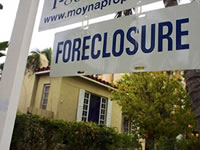Fannie Mae and Freddie Mac
Refinance
Government-Sponsored Enterprises: Fannie Mae and Freddie Mac Today
by Amy Lillard
Aug 2, 2007 - We've all heard of Fannie Mae and Freddie Mac, in various tones and across different topics. But who are they? How do they operate in the world of mortgages, money, and home ownership?How are they different from other banks and lenders? In a series of articles, we examine the good, the bad, and the curious about government-sponsored enterprises, otherwise known as Fannie Mae and Freddie Mac.
Fannie Mae and Freddie Mac are the two government-sponsored enterprises (GSE) working to expand home ownership across the country. For several years now the housing market has been booming, due to increased opportunity through entities like the two GSEs, pricing, and other factors. But it began to cool in the last year, and felt major shockwaves from a crashing subprime market sector. The effects in the greater financing and real estate industries, and in the national economy are still being felt, and will be for some time.
Fannie Mae & Jumbo Mortgage Rates
Just One Click! = Current Rate Chart

Start by selecting your state
Freddie Mac and Fannie Mae are now aiming to be part of the solution.
Subprime Primer
Subprime mortgages are those made to borrowers with credit scores that traditionally denoted a risk. Credit scores are awarded on a scale of 300-850. Prime borrowers are those with scores around and above 700. Those with scores below 620 have credit issues and are considered a risk by lenders.
On the basis of a strong and growing stronger housing market in the last few years, lenders began taking another look at potential borrowers with low credit scores. These “subprime” borrowers were offered home loans at higher interest rates than those paid by prime borrowers.
Refinance at Today's Low Rates!
In 2005 the Federal Reserve began a series of 17 hikes in the short-term interest rate, rising from 1% to 5.25%. Most subprime loans are based on floating interest rates that change as the short-term interest rates change. From this series of hikes, then, many homeowners who received loans before or around this time are now facing 30-50% increases in their monthly payments.
The problem came to a head in March as late payments on U.S. mortgages reached their highest level in over three years, particularly in subprime markets. The news confirmed what many in the industry had known for months – the subprime market was struggling, even teetering on the precipice of a major fall. One of the largest subprime lenders, HSBC Holdings, announced early in February that bad debts in 2006 exceeded $10.5 billion in 2006. Dozens of smaller companies have been falling by the wayside everyday.
And for homeowners? The result is an increasing number of loan defaults and delinquencies. Depending on the source, subprime loans made up as much as 23% of the housing market in 2006.
Subprime Collapse
Many think tanks and organizations are predicting that the subprime collapse is only starting. The Center for Responsible Lending predicts that almost 20% of subprime mortgages originating in the last two years will end in foreclosure. Many more defaults and delinquencies will occur, as the first rate adjustment on adjustable-rate mortgages come due.
To stem the bleeding, four groups of banking regulators have proposed a guidance to restrict subprime mortgage loans. The guidance calls for lenders to impose tougher standards, and to research a true and accurate picture of the potential borrower's ability to repay a loan.
For Freddie Mac and Fannie Mae, the leaders in the secondary mortgage market and in the housing market overall, the time had come to make a significant move.
Refinance at Today's Low Rates!
Follow the link to continue reading this article.
Government-Sponsored Enterprises: Fannie Mae and Freddie Mac Today, Part 2
Fannie Mae Eases Down Payment Requirement
Fannie Mae & Jumbo Mortgage Rates
Just One Click! = Current Rate Chart


